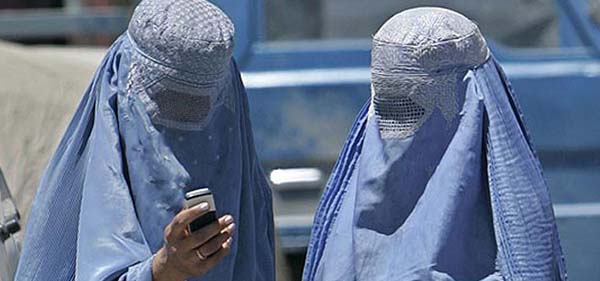The bombardment of cultures and customs in our country from all over the world claiming to bring modernity is a big challenge before younger generations. Presently, Afghanistan is in labor of giving birth to modernity and passing the traditional process of a close society. Younger generations have a great tendency to change their styles and appearances so as to seem modern and updated. A simple example is that a girl who lives in a poor and populated family, whose father’s income is no more than one hundred AFs per day, goes out with the best style and expensive clothing regardless of backbreaking works of her poor father who is struggling from dawn till dusk to find a morsel of food for his family.
The sudden storm of changes is taking place when Afghanistan is bombarded with multiple cultures and traditions through foreign films, pictures, music, TV channels and networks, no matter how much they lack ethical and moral standards. I remember when I was working with an Indian professor, a colleague of mine, who was Afghan citizen, surprised the professor by knowing Indian actors and actresses better than him and introducing to him while watching Indian films.
The cultural diversity of the present era and high vulnerability of Afghan younger generations that feel the kindness of so-called freedom, to some extent, especially after the fall of Taliban’s regime, make the situation uncontrollable. Moreover, it leads the younger generations to a state of total confusion to opt for multiple cultures and leave them in great dilemma whether to choose Indian, American, British or Turkish cultures, but the profits go to the pockets of traders and businessmen who are advertising and then importing the goods accordingly.
The unparalleled changes of appearance and mind of the people, especially of younger generations, have been a cause of great concern for the Islamic thinkers and still remain an issue. A great Islamic thinker and poet, Allama Iqbal Lahori, who was, probably, living in 20th century, says in his poem that the power of West is not gained through the way of clothing, hairstyle, dancing of immoral girls, beauty attraction or writing by Latin digits, rather it is gained through knowledge and technology. Knowledge and technology need mind not fashion, the poet adds. He also denounces Eastern countries who are copying the very cultures and traditions of West. Indeed, a modern and updated style does not match with outdated mind. Hence, modernity takes place when mentality of people develops along with the cultures of moral values.
It is believed that modernity is not a project to directly jump up to it; rather it is a process which is supposed to pass its flow in a normal way. Typically, modernity means post-tradition that we cannot cross it with traditional and conservative mind, however, updated style. For example, some may simply assume globalization as wearing British shirt, American pants, Japanese watch, Chinese glasses and Russian shoes rather than cultural exchanges and removing setbacks lying ahead of business and communications. Same is the case with modernity, they misinterpret and misuse it. As a result, some Muslims are, openly, ignoring Islamic codes and moral values claiming to practice modernity. In my opinion, addressing our misunderstanding and deviation to modernity is defaming it which is, indeed, a big injustice. In short, our younger generations are practicing modernity based on wrong identification and definition.
If we put a glance over European modernity, it has a strong link with the Renaissance that took place between the 14th and 17th centuries which resulted in great social and cultural changes. In a very general sense, the history of Europe can be divided into three main ages. These ages are known as the Classical Age, the Middle Ages and the Modern Age. According to the majority of historians, the fall of the Roman Empire in the 5th century BC marked the end of the Classical Age and the beginning of the Middle Ages. It is also generally accepted that the Industrial Revolution of the late 18th and early 19th centuries sparked the dawn of the Modern Age.
Until the Renaissance, most Europeans followed the teachings of Catholicism because they had little exposure to any form of education beyond this. Science was not a well-understood concept and very little of what the Church taught people about life was challenged. Those who spoke out against the Church were accused of ‘heresy’ and labeled a ‘heretic’ (someone who holds unorthodox beliefs). Heretics were often subject to extremely severe punishments, such as being tortured or burned at the stake in front of the townspeople.
The Renaissance also represented a break away from the conformist society and culture of medieval Europe. A conformist society is one in which people strictly follow established rules and practices. Breaking away from this mould, the Renaissance was a time during which new and inventive ideas began to spread and gain influence. Gradually, this decreased the dominance previously held by the Catholic Church.
European modernity or the Renaissance is neither practicable nor in need of our country, I have just mentioned it to see that how much they suffered for that. According to sociology, following one’s path for the same goal within the distance of time and place mostly meets failure and the history of our country confirms the same. When Afghan King Amanullah Khan, who was deeply affected by Western modernity during his trip in Europe, commenced modernized movements almost a century ago, he intended to pursue the very Western method regardless of people’s beliefs and Islamic values. He started from his own family; as a result, his wife took off her scarf and announced modernity this way - this finally led the King to his fall. Therefore, if we let the history be repeated in our country time and again, we will be highly responsible for the irreparable damages. I do not intend to deny modernity but I accept it in the frame of moral values.

